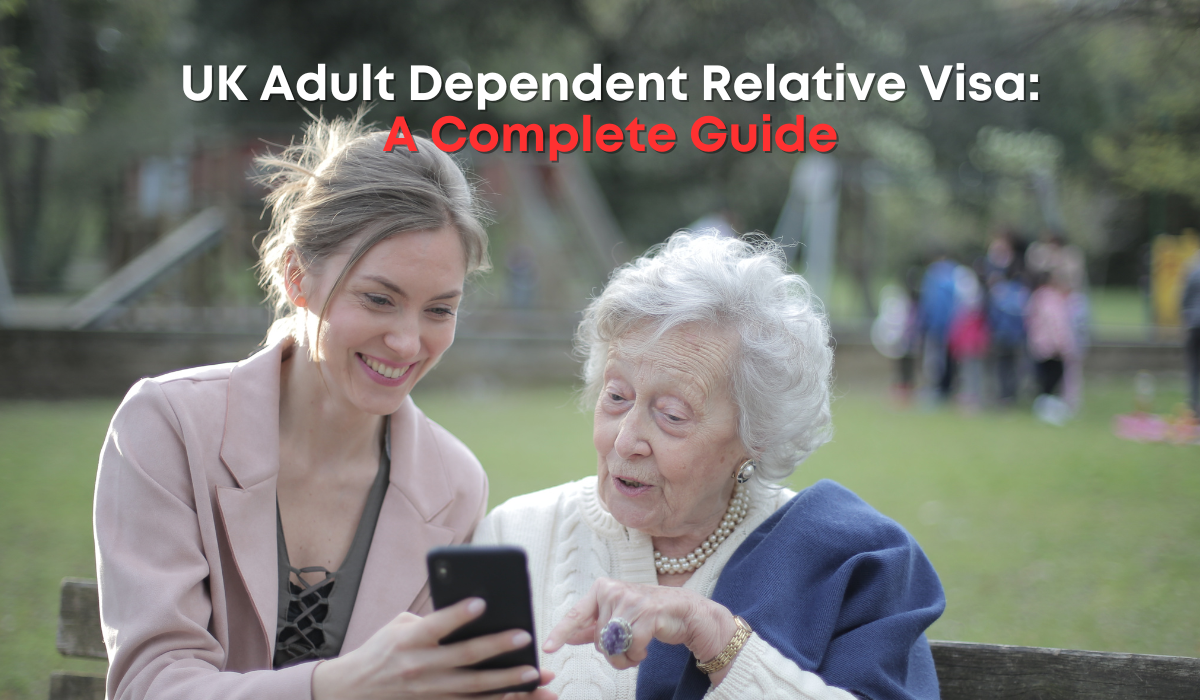For families separated by borders, the UK Adult Dependent Relative (ADR) visa provides a crucial opportunity to reunite under exceptional circumstances. Designed to bring close relatives needing long-term care into the care of their UK-based family members, the Adult Dependent Relative visa is a lifeline—but one surrounded by stringent criteria and complex application requirements. In this article, we delve into the eligibility, process, and challenges of the ADR visa, reflecting on its role in family reunification and its impact on applicants.
Who Can Apply for an Adult Dependent Relative Visa?
The ADR visa enables non-UK residents who require long-term personal care to join their settled relatives in the UK. Applicants must demonstrate that care is essential and cannot reasonably be provided in their home country. This includes assistance with daily activities such as washing, dressing, and cooking due to age, illness, or disability.
Eligible sponsors must be:
- British or Irish citizens,
- Settled in the UK (e.g., holders of Indefinite Leave to Remain, EU Settlement Scheme status, or permanent residence),
- Pre-settled status holders from the EU/EEA (including Switzerland) who lived in the UK before January 1, 2021, or
- Refugees or individuals granted humanitarian protection.
The applicant must be a close family member of the sponsor, specifically a:
- Parent (aged 18 or over),
- Grandparent,
- Brother or sister (aged 18 or over), or
- Son or daughter (aged 18 or over).
Notably, the visa excludes extended family members such as cousins, nieces, or nephews, emphasizing its focus on immediate family care.
Key Requirements for the ADR Visa
The Home Office enforces strict eligibility rules to ensure only those with genuine need qualify for the ADR visa. Applicants must meet several requirements, including:
- Long-Term Care Necessity Applicants must provide medical evidence confirming they require help with essential daily activities. This can arise from sudden illnesses, progressive disabilities, or age-related decline.
- Lack of Care in Home Country Evidence must show that adequate care is unavailable or unaffordable in the applicant’s home country. This includes letters from local authorities or healthcare professionals verifying the absence of viable options.
- Sponsor’s Responsibility Sponsors must prove they have sufficient resources to accommodate and care for the applicant in the UK without reliance on public funds. This includes evidence of:
-
- Financial stability, such as bank statements and income records,
- Adequate housing that meets UK standards and avoids overcrowding.
- Suitability Applicants must have no pending criminal convictions or history that may make their presence in the UK contrary to public good.
The Application Process
Applying for the ADR visa involves multiple steps, demanding detailed preparation and submission of evidence. Here is a step-by-step guide:
- Gather Evidence: Compile documentation to prove eligibility, including medical records, evidence of care needs, and financial stability of the sponsor.
- Online Application: Complete the ADR visa application form and Appendix 12 VAF4A.
- Pay Fees: The application fee is £3,250 for overseas applicants and £1,048 for those applying from within the UK. Additional costs include the Immigration Health Surcharge (£1,035 per year) and biometric fees (£19.20).
- Attend Biometric Appointment: Applicants must submit fingerprints and photographs at a visa application centre.
- Await Decision: The Home Office typically processes applications within 12 weeks. Priority and super-priority services are available for faster decisions.
Challenges and Refusals
Despite its significance, the ADR visa has one of the highest refusal rates among family visas. Common reasons include:
- The Home Office’s determination that care is accessible in the applicant’s home country,
- Insufficient evidence of long-term care needs,
- Financial inadequacies on the sponsor’s part.
Refused applicants have several options:
- Appeal to the First-Tier Immigration Tribunal,
- Administrative Review to address Home Office errors, or
- Judicial Review to challenge legal or procedural issues.
Alternatively, submitting a fresh application with stronger evidence may be a more pragmatic solution.
A Reflection on Family and Policy
The ADR visa reflects the UK government’s effort to balance compassion with practicality. By restricting the visa to immediate family members and requiring robust evidence of need, the Home Office aims to ensure resources are allocated to the most vulnerable. However, critics argue that the stringent criteria and high application costs make the process inaccessible to many deserving families.
For those navigating this challenging path, the importance of thorough preparation cannot be overstated. A well-documented application supported by expert legal advice significantly improves the likelihood of success. At the same time, the Home Office must continue to refine its approach, ensuring fairness and humanity in assessing the genuine needs of applicants.
Final Thoughts
The ADR visa is more than a legal process; it is a reflection of the value placed on family and care. While its hurdles can feel insurmountable, for families who succeed, it offers a profound opportunity to reunite and provide much-needed support to loved ones.
If you are considering applying for an ADR visa or have faced a refusal, seeking advice from specialist immigration solicitors can make all the difference. Contact our team for expert guidance tailored to your unique circumstances. Together, we can navigate the complexities of UK immigration law and work towards reuniting your family.
Get in touch: For a comprehensive understanding of your options or queries on UK immigration matters, contact GigaLegal Solicitors at 02074067654 or click here to book a no-obligation consultation with an immigration expert.


